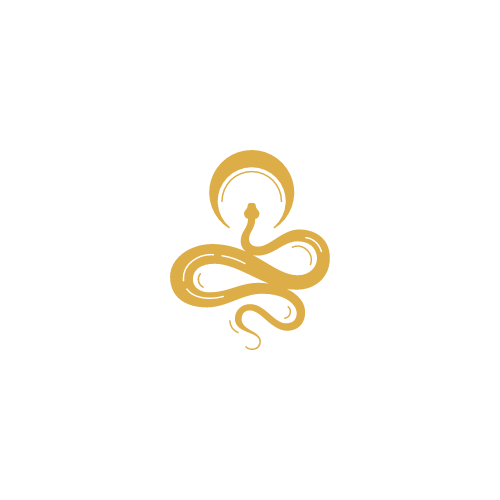Relationship Counselling
Can relationship counselling help?
Yes, relationship counselling can help. A therapist or counselor can work with individuals or couples to identify and address issues in their relationship, such as communication problems, trust issues, or conflicts. Through counselling, couples can learn new skills and tools for resolving conflicts and improving their relationship. However, the success of counselling depends on the specific issues present in the relationship and the willingness of both partners to actively participate in the process.
What types of relationship counselling is there?
There are several different types of relationship counselling, including:
Couples therapy: This type of counselling is specifically for couples who are experiencing relationship problems. It can help couples improve their communication, resolve conflicts, and deepen their emotional connection.
Family therapy: This type of counselling involves the entire family and can help them work through conflicts and improve their relationships with one another.
Individual therapy: This type of counselling is for individuals who are struggling with issues related to their relationships, such as trust or abandonment issues.
Premarital counselling: This type of counselling is for couples who are planning to get married. It can help them address potential issues and build a strong foundation for their future marriage.
Online counselling or teletherapy: This type of counselling is done through video conferencing or phone call. It is convenient and can be done from home.
It is important to note that different types of counselling may be appropriate for different couples or individuals depending on their specific needs and goals.
What type of relationship counselling is most effective?
Cognitive-behavioral therapy (CBT) is the most effective form of relationship counselling, according to research. CBT focuses on identifying and changing negative patterns of thought and behavior in individuals, which can improve communication and problem-solving skills in couples. Other effective forms of counselling include emotionally focused therapy (EFT), which emphasizes the emotional bond between partners, and the Gottman method, which focuses on building a strong, healthy relationship through communication and problem-solving skills. Ultimately, the effectiveness of counselling will depend on the specific needs and goals of the couple, and the qualifications and experience of the therapist.
Can you tell me more about CBT for couples?
Cognitive-behavioral therapy (CBT) for couples is a form of therapy that helps couples identify and change negative patterns of thought and behavior that may be causing problems in their relationship. CBT for couples focuses on helping individuals understand how their thoughts and beliefs influence their behavior, and how that behavior affects their partner and the relationship as a whole.
During CBT for couples, the therapist will work with both individuals to identify negative patterns of behavior and thought that are causing problems in the relationship. For example, one partner may have a tendency to be critical and judgmental, while the other partner may have a tendency to withdraw and shut down emotionally. Once these patterns have been identified, the therapist will work with the couple to help them understand how these patterns are affecting the relationship and to develop new, more positive ways of interacting with each other.
CBT for couples also focuses on teaching couples effective communication and problem-solving skills, which can help them resolve conflicts and improve their relationship. The therapy can also help couples to identify and address underlying issues that may be contributing to the problems in their relationship, such as past traumas, low self-esteem, or problems with trust.
Research has shown that CBT for couples can be effective in treating a wide range of relationship problems, including communication problems, conflicts, and infidelity. It's important to note that the effectiveness of therapy also depends on the qualifications and experience of the therapist and the specific needs and goals of the couple.
Can you tell me more about EFT?
Emotionally Focused Therapy (EFT) is a form of couples therapy that was developed by Dr. Sue Johnson and Dr. Les Greenberg in the 1980s. It is based on the idea that emotionally fulfilling relationships are essential for human well-being and that couples often get stuck in negative patterns of interaction that prevent them from achieving an emotionally intimate and secure bond.
EFT is an attachment-based therapy which focuses on the emotional bond between partners. It aims to help couples understand and express their emotions in a way that fosters intimacy, connection, and trust. EFT therapists help couples to identify and understand the negative patterns that are preventing them from connecting emotionally, such as defensiveness, withdrawal, or criticism.
During EFT sessions, the therapist helps couples to identify and express their underlying emotional needs, fears, and vulnerabilities. The therapist also helps them to understand how these emotions are driving the negative patterns in their relationship, and how they can change these patterns to promote emotional connection and intimacy.
EFT is an evidence-based therapy that has been found to be effective in treating a wide range of relationship problems, including communication problems, conflicts, and infidelity. Research has shown that EFT can lead to significant improvements in couples' relationship satisfaction, trust, and emotional intimacy.
EFT is a short-term therapy that can be done in 8-20 sessions, with the goal of helping couples to develop a more secure and emotionally intimate bond. It's important to note that the effectiveness of therapy also depends on the qualifications and experience of the therapist and the specific needs and goals of the couple.
What if there is abuse in the relationship?
If there is abuse in a relationship, it is important to seek help immediately. Emotionally Focused Therapy (EFT) and Cognitive-behavioral therapy (CBT) are not recommended for couples where there is abuse, as these therapies focus on improving communication and problem-solving skills and may not address the underlying issues of abuse.
If there is abuse in the relationship, it is important for the person experiencing abuse to seek help and support from a professional trained in working with abuse survivors. It is important to find a therapist who is knowledgeable about the dynamics of abuse and has experience working with survivors.
The safety and well-being of the person experiencing abuse should be the primary concern. It is important that the person experiencing abuse has a safety plan in place, which may include finding a safe place to stay, changing phone numbers, and/or obtaining a restraining order or a protection order.
It's also important to note that abuse is a criminal matter and it is recommended to report it to the police. If a person is in immediate danger, it's best to call 111.
It's important to remember that abuse is never acceptable, and that the person experiencing abuse is not to blame. There are many resources available to help individuals and couples who are dealing with abuse, and it's important to seek help as soon as possible.




